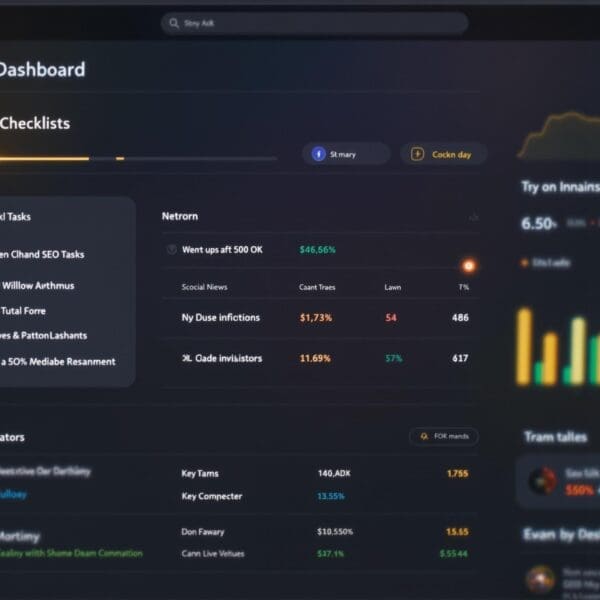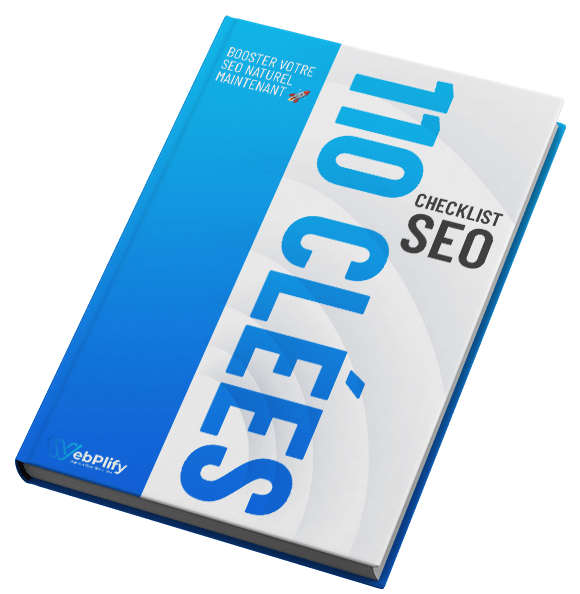Optimize your website is crucial to improving its visibility and search engine ranking. Here are the key points:
- Quality content: Essential for SEO, it must be original and relevant.
- Technical aspects: Loading speed, responsive design and security are paramount.
- Backlinks: Adopt a natural, qualitative approach to obtaining external links
- Ongoing analysis: Monitor your performance and adjust your strategy regularly
Optimizing a website is an essential process for improving its visibility and ranking in search engines. In this comprehensive guide, we’ll look at strategies and tips for effectively optimizing your website. Whether you’re a beginner or an expert in SEO, you’ll find invaluable advice on how to boost your online presence.
Table of contents
ToggleThe fundamentals of SEO
Search engine optimization (SEO) is based on three main pillars: content, technique and backlinks. To succeed in your SEO strategy, it’s essential to master these fundamental aspects.
Content is king in the world of SEO. It must be high-quality, original and relevant to your visitors. Here are a few key points to consider:
- Choose your target keywords wisely by analyzing users’ search intentions
- Structure your pages with H1, H2 tags, etc.
- Optimize your title and meta description tags
- Create effective internal links between your pages
The technical aspect is just as important. It encompasses several elements that directly influence your site’s performance:
- Site loading speed
- Mobile adaptation (responsive design)
- Site security (HTTPS)
- Setting up a robots.txt file and XML sitemap
Finally, backlinks play a crucial role in your SEO strategy. They represent quality external links pointing to your site. It’s essential to adopt a natural, qualitative approach to obtaining these valuable backlinks.
To deepen your knowledge of these fundamentals, I invite you to consult our detailed article on SEO fundamentals: understanding to better optimize your website.
Advanced strategies for effective SEO
Once you’ve mastered the basics, it’s time to move on to advanced strategies for optimizing your website. These techniques will enable you to stand out from the competition and significantly improve your ranking in the SERPs.
Content optimization goes beyond simply inserting keywords. It’s about creating rich, engaging content that meets the needs of your audience. Here are a few tips to help you do just that:
- Use semantic entities related to your main topic
- Integrate multimedia content (images, videos, infographics)
- Update your articles regularly to maintain their relevance
- Create long, in-depth content (pillar content)
Advanced technical optimization encompasses more complex but equally important aspects:
- Setting up structured data (schema.org)
- Optimizing loading speed (Core Web Vitals)
- Implementing a budget crawl strategy
- Handling 404 errors and redirects
Advanced netlinking requires a strategic approach. It’s not just about getting links, but getting them from the right sources. Here’s a table summarizing the types of backlinks to focus on:
| Backlink type | Importance | Strategy |
|---|---|---|
| Editorial links | High | Quality content creation and outreach |
| Links from authority sites | Very high | Partnerships, interviews, expert contributions |
| Local links | Medium to high | Participation in local events, sponsoring |
For a complete approach to these advanced strategies, I recommend that you consult our professional guide to mastering the 10 pillars of SEO.

Continuous optimization and performance analysis
Optimizing a website is not a one-off process, but an ongoing effort that requires regular monitoring and adjustment. To maintain and improve your SEO performance, it’s crucial to implement a strategy of continuous analysis and optimization.
Performance monitoring is the key to understanding the effectiveness of your optimization efforts. Use tools such as Google Analytics and Google Search Console to track your key metrics:
- Organic traffic
- Average positions for your target keywords
- Bounce rate and session duration
- Conversion rates
Competitor analysis is also a crucial aspect of your ongoing optimization strategy. Monitor your competitors’ movements and identify opportunities for improvement on your own site.
Don’t forget to keep an eye out for updates to Google’s algorithms. These changes can have a significant impact on your SEO and require adjustments to your SEO strategy.
Over the course of my career, I’ve had the opportunity to work on a variety of SEO projects, particularly for companies in the construction sector. I’ve found that the most effective approach is to combine rigorous technical optimization with a content strategy focused on solving real-life customer problems.
To help you implement an effective optimization strategy, I invite you to consult our detailed guide on 6 steps to optimizing your SEO in 2024. You’ll find practical, up-to-date advice on how to boost your SEO.
Integrating SEO into a global marketing strategy
SEO should not be seen as an isolated strategy, but as an essential component of a broader digital marketing strategy. To maximize the impact of your optimization efforts, it’s crucial to integrate them harmoniously with other marketing channels and tactics.
The synergy between SEO and social networks can greatly boost your online visibility. Here’s how to take advantage of this complementarity:
- Share your optimized content on social networks to generate traffic and social signals
- Use social networks to identify trending topics and create SEO-relevant content
- Encourage social sharing of your content for natural backlinks
User experience (UX) is an increasingly important factor in SEO. Google attaches great importance to user satisfaction. As a result, optimizing your site’s UX can have a positive impact on your SEO:
- Improve your site’s navigation and structure
- Optimize loading times on mobile and desktop devices
- Create a responsive, intuitive design
- Make sure your content is easily readable and accessible
Finally, don’t forget the importance of content marketing in your SEO strategy. Creating quality, informative and engaging content is essential to attracting and retaining your target audience. This includes not only blog posts, but also infographics, videos, podcasts and other content formats relevant to your industry.
As an SEO expert who has worked with a variety of companies, particularly in the professional sector, I’ve seen the importance of a holistic approach. For example, for a law firm, we succeeded in doubling local visibility by combining a targeted SEO strategy with an active presence on social networks and the creation of high-quality legal content.
By adopting this integrated approach, you’ll not only maximize your search engine visibility, but also build a solid, consistent online presence that resonates with your target audience.















